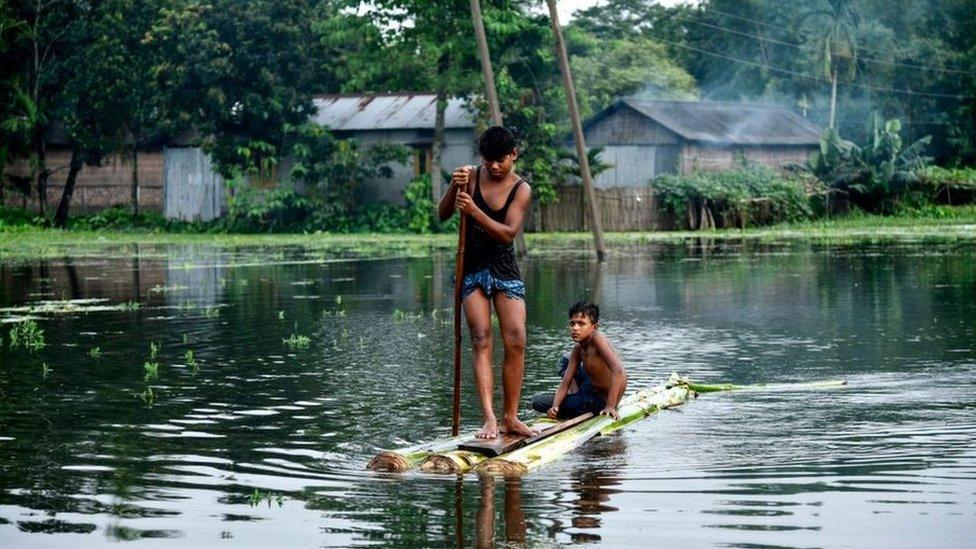Monsoon floods kill dozens and displace millions in India
- Published
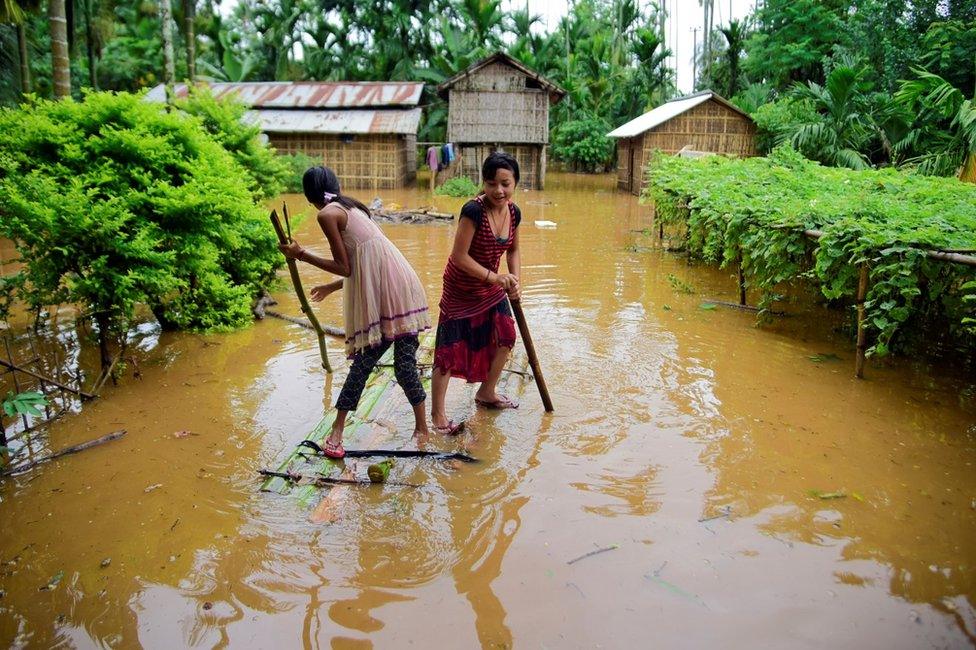
Girls row a makeshift raft in Assam
Millions have been stranded or displaced as devastating floods continue to ravage large parts of India, Nepal and Bangladesh.
In India, the eastern state of Bihar and the north-eastern state of Assam have been the worst hit.
Local officials told BBC Hindi that nearly 100 people have been killed in both states.
The region was hit by monsoon rains which triggered floods and landslides, submerging homes and transport links.
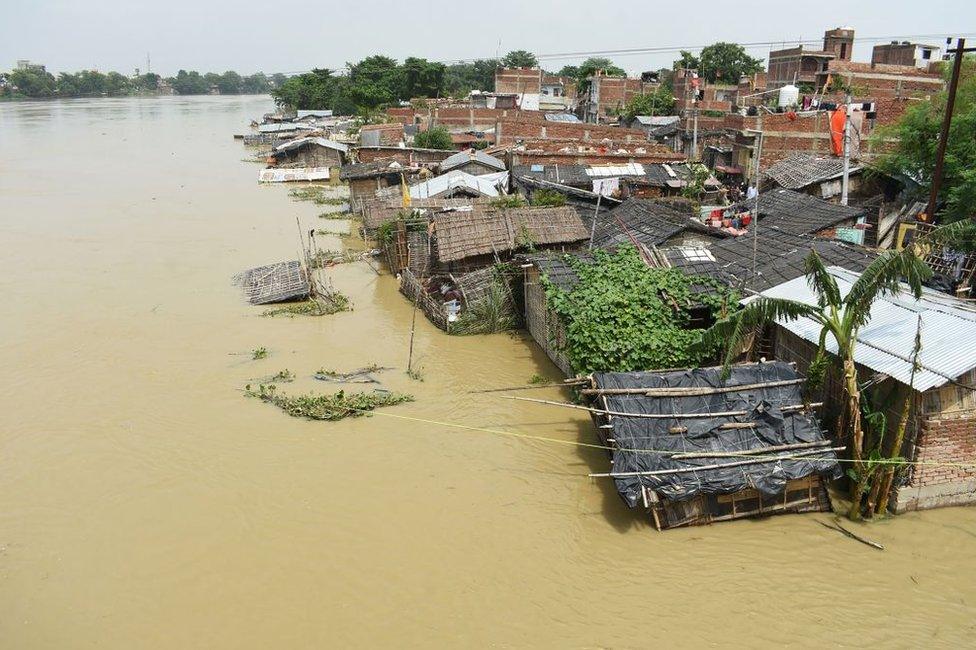
Muzaffarpur in Bihar is among the worst hit places
Flood waters covered buildings, roads and railway lines, cutting off whole districts - such as Muzaffarpur in Bihar.
Some 4.7 million have been displaced in Bihar, one of India's poorest states. More than 100,000 people are now living in relief camps, officials say.
Kosi, one of the state's major rivers, is referred to as "the sorrow of Bihar" because of the devastating floods it causes every year during the monsoon.
The monsoon season, which lasts from June to September, wreaks havoc across South Asia.
More than 1,200 people died in the region amid storms and landslides last year, when India's southern state of Kerala faced its worst floods in nearly a century.
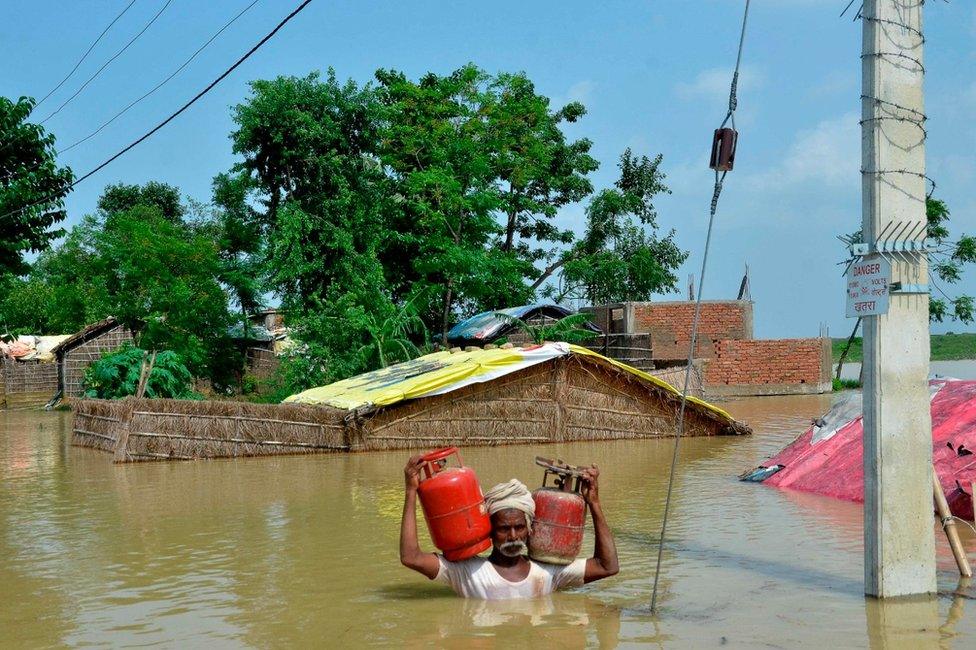
In the latest flooding, residents have been forced to leave their homes for higher ground.
Many have tried to salvage what they can. Cooking gas cylinders, which the federal government gives to poor families for a subsidised price, are a precious commodity in India.
Floods have also ravaged farm land in Assam and Bihar, which are still predominantly dependent on agriculture.
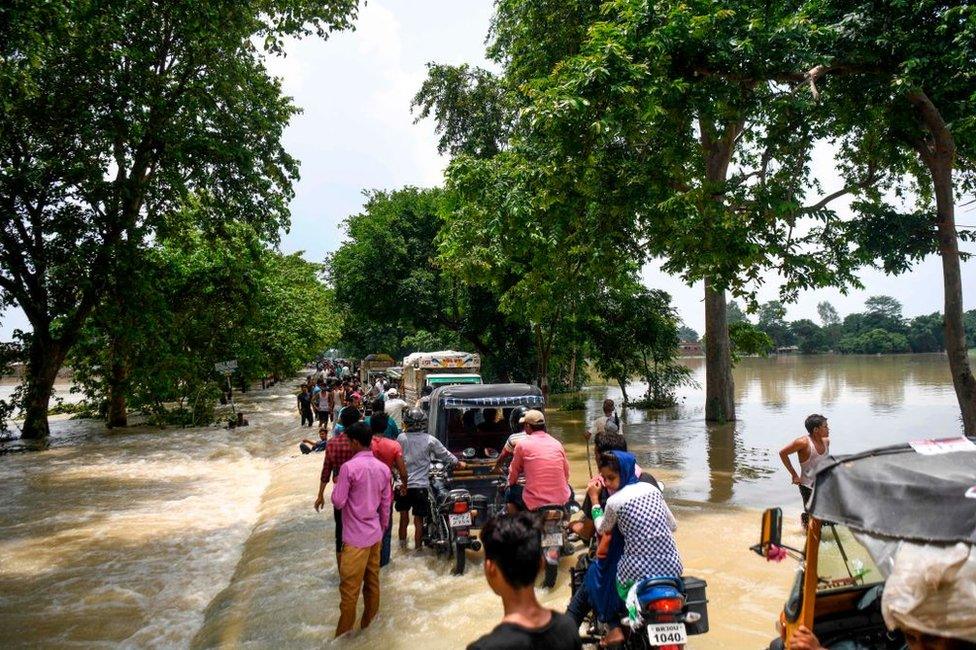
Sitamarhi district in Bihar was badly flooded
In Assam, the water level in the Brahmaputra river and its tributaries is showing a "rising trend", officials told Reuters. They added that it is "flowing above the danger mark in at least 10 places".
A jail in Dhubri district was inundated, forcing officials to move all 409 prisoners to a girl's college that had escaped the flood waters.
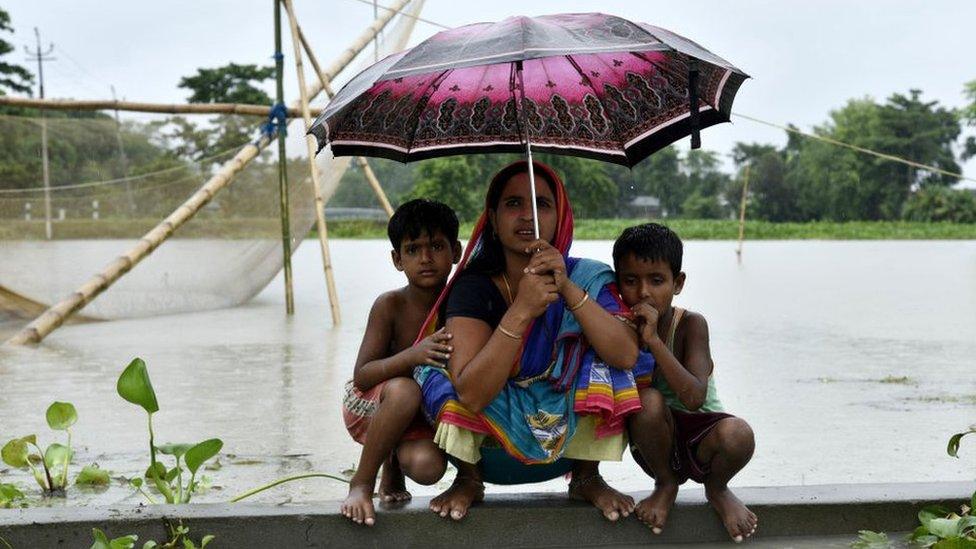
A woman and her children seek shelter on higher ground in Barpeta, Assam
Residents are waiting for the water to recede in Assam's Barpeta district, which, according to some reports, is the worst hit in the state.
Some 5.7 million people have been displaced in Assam - more than 150,000 are living in relief camps.
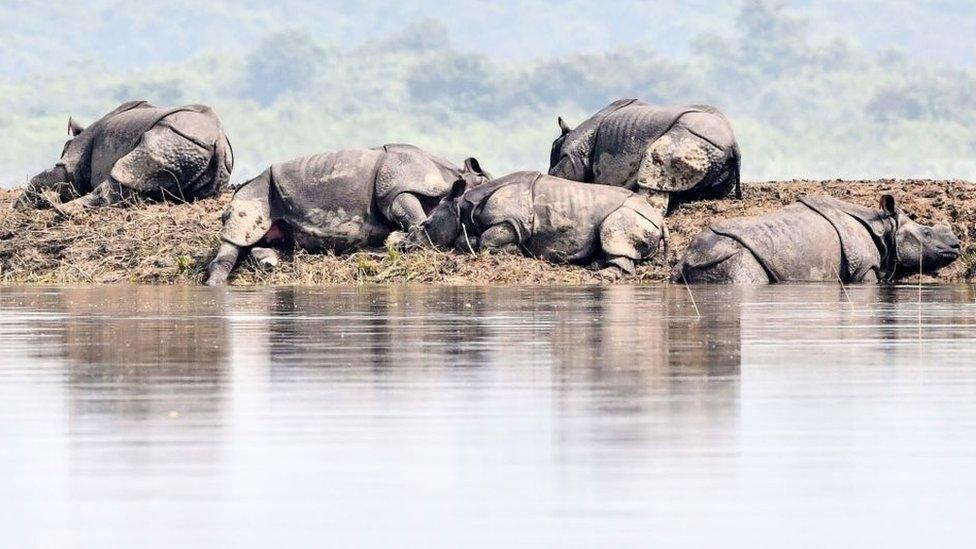
Rhinoceros seek refuge in Assam
The floods have also affected Kaziranga national park, one of the world's most important wildlife parks and home to the highly endangered one-horned rhino.
Rescue and relief efforts are under way - but they have been slowed by the remoteness of many of the flooded villages. Rains have also continued, making it that much harder to get supplies in.
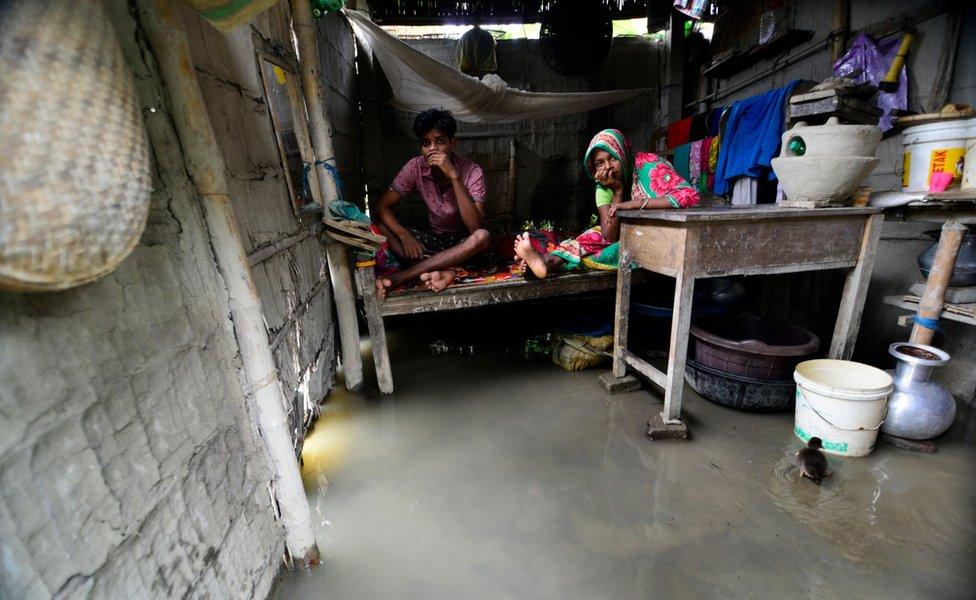
A couple in Assam's Morigaon district wait for help
"We're trying our best to reach out to the affected people in whatever way possible but yes, the situation is indeed very bad," Assam's Social Welfare Minister Pramila Rani Brahma told Reuters.
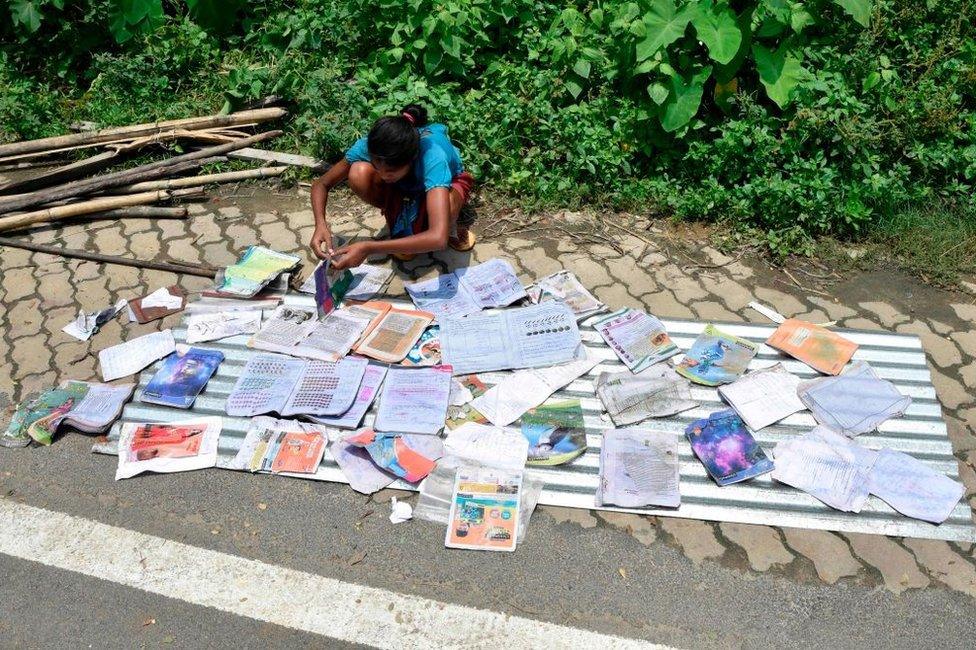
A girl in Assam's Hatishila village puts her drenched school books out to dry
.
- Published16 July 2019
